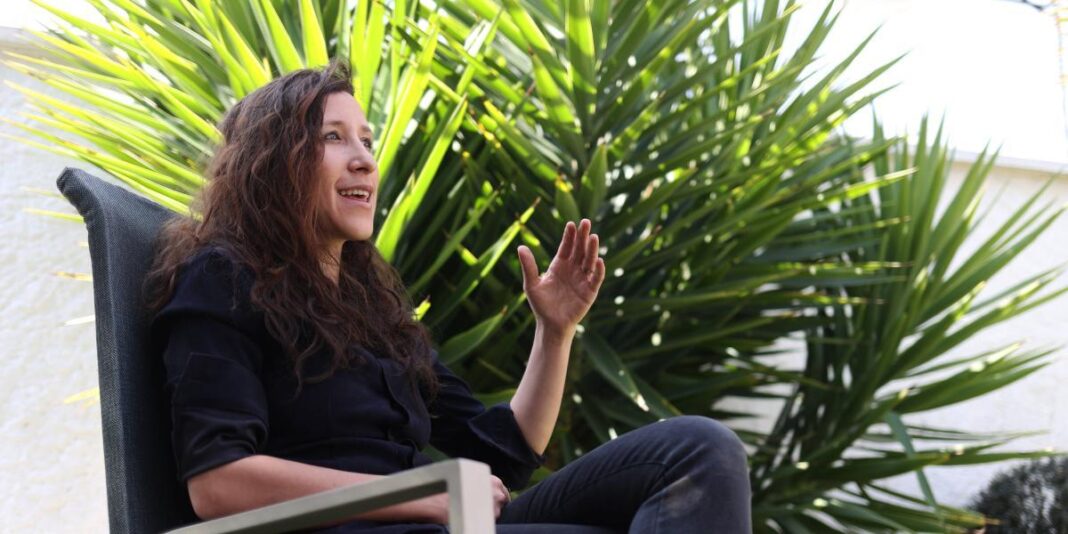La Paz — The mountain air of La Paz carries a quiet, humbling weight—like history breathing softly down the neck of a new era. It’s fitting, then, that in this city perched high in the Andes, Marsia Taha Mohamed found her voice. But it wasn’t a voice that was loud or brash. It was one steeped in the whispers of ancient cultures, in ingredients as wild as the Amazon itself. And today, it sings with triumph. On October 3, 2024, Marsia was named the Best Female Chef in Latin America, a recognition that transcends culinary skill. It speaks to her journey, one defined by heritage, sustainability, and an unwavering belief in the power of food to tell stories that words cannot capture.
Marsia’s journey, like the rise of Bolivia’s culinary landscape, is a tale of resilience and roots. It’s about reclaiming tradition while pushing boundaries—understanding that in every dish lies not just a meal, but a memory, a piece of history, and a glimpse into a more sustainable future.
The Rise of a Culinary Star: Marsia Taha’s Path to Greatness
From Gustu to Arami: A Journey Rooted in Bolivia’s Heart
Marsia Taha didn’t simply inherit the helm of Gustu, the famed La Paz restaurant that put Bolivia on the global culinary map. No, she earned it. After a decade spent exploring the Amazonian forests, learning the delicate balance of flavor from indigenous communities, and crafting dishes that honored Bolivia’s biodiversity, she became something more than a chef. She became a storyteller.
Gustu, once her home for creative exploration, was more than just a restaurant—it was a crucible of Bolivian heritage. It was in Gustu’s kitchen where Marsia discovered that true innovation comes from looking backward before looking forward. And though she has now left the kitchen that molded her, it’s impossible to separate her from the roots she planted there.
Now, as she prepares to launch her new restaurant Arami—a Guaraní word meaning “piece of paradise”—the culinary world waits. Not with bated breath, but with the same anticipation that one feels before a long-awaited journey into uncharted territory. Because Marsia doesn’t just serve food; she serves stories of a people, a land, and a future that desperately needs preservation.
The Power of Ingredients: Preserving Bolivia’s Culinary Heritage
Advocating for Amazonian Ingredients and Sustainability
In a world where fast food dominates and culinary shortcuts abound, Marsia Taha has taken a different path. Her focus on Amazonian ingredients and the preservation of Bolivia’s culinary heritage is as much about honoring the past as it is about building a future. Through her work with Sabores Silvestres, an initiative she co-founded, Marsia champions sustainable practices that bring attention to the richness of the Amazon while ensuring that the people who live off its land can continue to thrive.
When she talks about ingredients, it’s not just about flavor or presentation. It’s about connection. Connection to the land, to the indigenous communities who’ve been stewards of that land for generations, and to the future of food. “The Amazon holds secrets,” she once said, “and those secrets deserve to be told, not exploited.” It’s a philosophy that pulses through her every dish, each one a marriage of innovation and respect.
Legacy of Empowerment: Women Leading Latin America’s Culinary Renaissance
Celebrating the Role of Women in the Kitchen
Marsia Taha joins a growing list of powerhouse women chefs who are redefining what it means to lead in the culinary world. From Pía León in Peru to Leonor Espinosa in Colombia, these women are not just breaking barriers—they’re building legacies. And for Marsia, it’s not just about being a woman in a male-dominated field. It’s about lifting others as she climbs, ensuring that future generations of Bolivian chefs—especially women—have a seat at the table.
“The kitchen has always been a place of power,” Marsia reflects, “but for too long, that power was hidden behind closed doors. Now, we’re opening those doors.” Her leadership is not just about creating world-class food. It’s about creating opportunity, fostering inclusion, and using the kitchen as a space for empowerment.
The Future of Latin American Cuisine: Beyond the Plate
What’s Next for Marsia Taha?
As Marsia prepares to open Arami, the world eagerly anticipates not just a restaurant, but a movement. In Guaraní, “Arami” translates to “piece of paradise,” and that’s exactly what Marsia aims to create—a sanctuary where food is not just consumed, but understood. She envisions a space where every plate tells a story of biodiversity, of preservation, of a world that still holds wild places worthy of protection.
And in a world increasingly disconnected from the sources of its food, Marsia’s message is clear: look closer. The answers to the future of food—of sustainability, of culture, of heritage—are already here, hidden in the forests, the mountains, and the rivers of places like Bolivia.
For Marsia Taha, food is not just sustenance. It is memory. It is activism. It is love.
Conclusion: Celebration of Heritage and Innovation
In a kitchen somewhere high in the Andes, Marsia Taha stirs a pot of soup. The air is thick with the aroma of native spices, the kind that remind her of the Amazon, of the countless hours spent learning from the indigenous communities who opened their homes—and their knowledge—to her. She smiles, not because of the award, not because of the fame, but because this—this quiet moment—is where she feels most herself.
The world may know her as Latin America’s Best Female Chef, but to Marsia, that title is just a reflection of something deeper. It’s a reflection of her journey—one defined not by accolades but by the people, the land, and the heritage that shape her every move in the kitchen. And as she steps into the next chapter of her culinary career with Arami, one thing is certain: Marsia Taha’s story is only just beginning.


